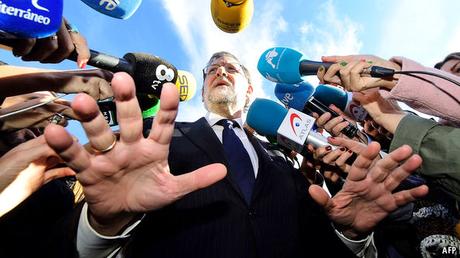
“AS BAD as having no government is having a government that can’t govern,” the Spanish prime minister, Mariano Rajoy, told parliament in October, just before the vote that gave him a mandate to form a new administration. Spain had grown rather used to the former situation: it spent ten months in a state of limbo, as two elections delivered parliaments so fragmented that no party could broker a coalition. It is a step forward that Mr Rajoy has been able to form a minority government. But as he foresaw, governing is not going to be easy.
The parliamentary arithmetic is unforgiving. Mr Rajoy’s conservative People’s Party (PP) has 137 of the 350 seats in the Cortes (parliament). It has the support of the 32 legislators of Ciudadanos, a liberal party. To pass laws, it must either scrape together seven further votes from Basque nationalists and Canarian regionalists (who want more autonomy for the Canary Islands), or hope the opposition Socialists abstain.
The first big test is next year’s budget. The government faces contrasting pressures. It has promised the European Commission that it will cut the fiscal deficit from 4.6% this year to 3….

